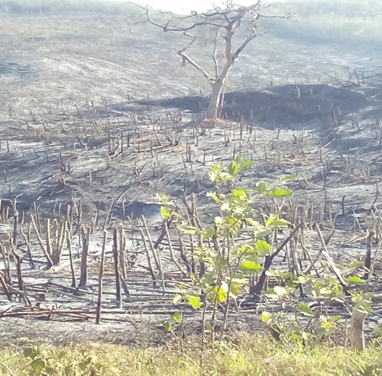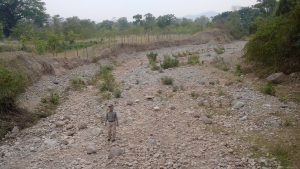According to coffee industry projections, in order to keep up with consumer demand, an area nearly the size of Honduras and Nicaragua combined will need to be converted to coffee cultivation.
The majority of coffee expansion will come at the expense of forest habitat according to the industry’s Sustainable Coffee Challenge. For Central America, where coffee is grown at high elevations, the conversion of forest to coffee cultivation is impacting the health of watersheds that provide water for coffee growing communities, municipal drinking water and for Honduras, energy for the nation’s largest electric utility, the El Cajon hydropower station.
High elevation forests serve as the headwaters for the watersheds, placing coffee at the heart of the challenge to reduce deforestation associated with coffee cultivation.
The situation for the coffee industry is compounded by its reliance on industrial coffee drying fueled by firewood from tropical forests. The Costa Rican Coffee Institute has declared conventional coffee drying an environmental emergency.
What cloud forests have been “protected” though the formation of National Parks and “protected regions” in Honduras now hang in the balance, as the agency in charge of these majestic parks is reporting that 45% of the park system is now deforested.
Municipalities and community water boards are declaring water emergencies as deforestation and climate change are impacting the water supply.
Sustainable Coffee Challenge Goals
In order to try to achieve a balance in increasing supply, while limiting coffee’s impact on deforestation, industry leaders and conservation organizations have proposed the following ambitious goals to achieve by 2030:
Become carbon neutral (or positive) for coffee by:
- Reducing Green House Gas (CHG) emissions and transitioning to renewable energy sources and/or conserving 500,000 hectares of forest
- Achieve land neutrality (or positivity) via forest conservation or reforestation programs
How does the Mesoamerican Development Institute (MDI) and the Café Solar® Program Provide Practical Working Solutions Toward Achieving these Goals?
MDI is scaling up carbon-neutral coffee processing using hybrid solar/biofuel industrial coffee drying with our patented drying technology. The drying technology eliminates entirely the use of firewood in industrial coffee drying.
MDI’s Integrated Open Canopy™ coffee production conserves and/or restores forest habitat on private lands (coffee farms). Carbon sequestered in the forest habitat combined with the use of clean technology in processing allow for high quality carbon offsets to be sold to international markets to provide incentives for farmers to adopt this land-sparing method of coffee cultivation.
These high elevation patches of forest habitat are not only essential for healthy watersheds, they conserve local biodiversity as well. Integrated Open Canopy™ farms have been found to support more birds, including forest-dependent species not supported by shade coffee, than other cultivation methods.
MDI’s team of local biologists, coffee producer organizations, and partnered university researchers are working to advance the Yoro Biological Corridor. This Corridor includes the coffee regions connecting eight threatened national parks and the watershed supplying the El Cajon hydropower utility. The goal is to scale up carbon-neutral processing to serve coffee producers and replicate Integrated Open Canopy™ farms throughout this landscape.

El Cajon hydro utility provides 25% of the nation’s electricity is being impacted by deforestation on coffee farms








